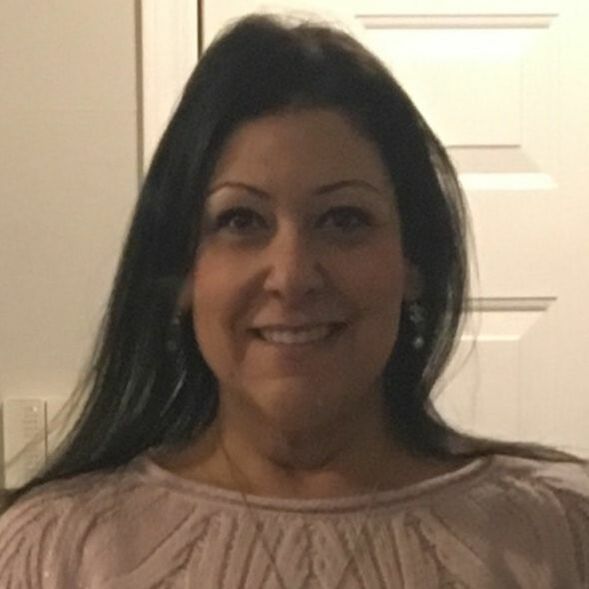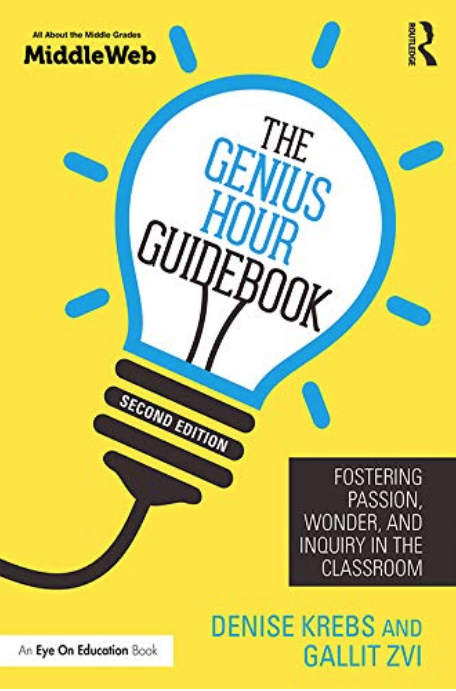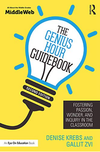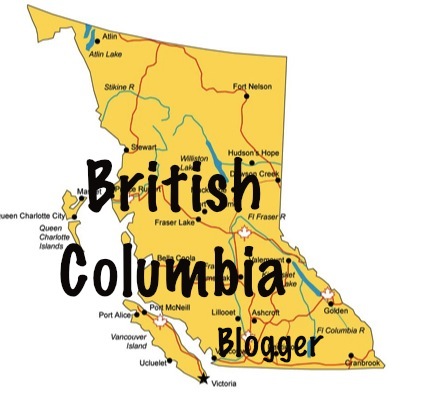Conferences are always so great--I love learning with new people and meeting some of my tweeps face-to-face! I had a wonderful time and learned a lot. My biggest take-away though, and one that I can see myself using with my students in order for them to authentically explain their learning, was on the concept of Appsmashing! Check out the video below--it is my appsmash on appsmashing!
|
On February 2-5th, I was lucky enough to attend the edtech teacher iPad Summit in San Diego. Conferences are always so great--I love learning with new people and meeting some of my tweeps face-to-face! I had a wonderful time and learned a lot. My biggest take-away though, and one that I can see myself using with my students in order for them to authentically explain their learning, was on the concept of Appsmashing! Check out the video below--it is my appsmash on appsmashing!
4 Comments
On the first Wednesday of each month a bunch of fantastic educators get together on twitter for a chat about Genius Hour. The past two chats have been amazing! We had a lot of experienced #geniushour teachers and a lot of newbies too! It was a great mix! We had great conversations, but it was moving so fast that I thought I would summarize some it. We talked about assessment and giving feedback. Most agreed that they did not grade Genius Hour projects, but instead provided formative assessment only. After re-reading over 50 pages of archived tweets, here are some highlights:
There you have it! 10 ways to give feedback. Do you have any others? Comment below! A lot of us shared that we struggled to find the time to connect with every single student. I liked Angela Maiers' advice: "Commit to 5 min a day - make a schedule five learners in five minutes everyday, non-negotiable". This was echoed by Kevin Ashworth when he said that he will often quickly conference with students about Genius Hour, during non-genius hour time! Chris Kesler suggested having students reflect from home, if time is an issue in your classroom! Another interesting point of discussion, brought up by Troy Cockrum, was that of bringing in mentors; parents or community members who could assist students with their projects and provide insight. This is something I am definitely going to look into! This year, Hugh and I had students with skype with some experts for Health and Career class. Why not have them join for Genius Hour too? I love it! We also talked about ways in which students can share their projects. Some common responses:
Thank you all for participating in the chat and for giving us some things to think about when we implement our next round of Genius Hour.
PLN, did I miss anything? Please comment below! Would love to hear from you! I have been playing (yes, playing, I think playtime is so important and necessary with new technology) with Digital Storytelling since I first got an iPad. But my experience really changed after I heard Dean Shareski talk about the 60 one second movie. Well my colleagues and I loved this idea and we got right on to playing with our iPads and making our own sample movies. Making a movie myself was very important...at our school we talk a lot about the importance of going where we want out students to go! My Thanksgiving 60 second movie is below. Our students then created their own 60 second iMovies. The challenge: Tell the story of School in 60 seconds (thank you to our prinicipal, Antonio Vendramin, for leading this with the grade 6s while the teachers went to camp with the 7s). The results were fantastic! The kids told a story using short video clips. We have also told the story of Healthy Living, using the Learning Outcome: "Describes the benefits of being physically active on attaining and maintaining a balanced, healthy lifestyle" (BC Prescribed Learning Outcome) as our inspiration. Again, students used the 1 second clip type of iMovie to tell their stories. And last week, in time for Valentine's Day, we told our stories through music by creating Friendship Music Parodies. Our inspiration was the learning outcome, "identifies characteristics of healthy relationships" (BC Prescribed Learning Outcome) and of course Valentine's Day too. Well, we certainly discovered that this type of storytelling (music video) was very difficult! Students had to: -choose a song -rewrite the lyrics so that they were about healthy friendships and relationships-storyboard the song, thinking about how they were going to make the video images consistent with the new lyrics and the music -film the story -sing their parody version of the song and layer over their video -edit and add in friendship quotes as they saw fit Students love storytelling. Next up for us, telling stories using book creator with our little buddies. We did this last year and they loved it!
And then I am looking forward to trying out some new ways of digital storytelling! Obviously you can see what types I am most comfortable with, but thanks to #etmooc, I am learning about so many more methods! More to come soon... We tried something new this past month in Health & Career 6/7. Hugh McDonald and I wanted to give the students more opportunities to be creative (besides their Genius Hour time of course), so we gave groups of 4 students a Learning Outcome and an iPod and said make a short 60 second movie (inspired by Dean Shareski) proving your understand this Learning Outcome: "Describes the benefits of being physically active on attaining and maintaining a balanced, healthy lifestyle" (BC Prescribed Learning Outcome) Students had a wonderful time creating these short movies. They: -COLLABORATED to decide on a story/scenes for their movies -CRITICALLY THOUGHT about what the learning outcome meant to them. Side note: many decided that although the learning outcome didn't mention healthy eating, they ought to include it because then it would be easier to be physically active, since they would have the energy from the nutritious food. -CREATED short skits and took turns filming -COMMUNICATED their thoughts through video and shared online A nice, short unit that is very student-centred and encompasses many aspects of 21st Century Learning. I am so thankful that I have such a great teaching partner, Hugh McDonald, who thinks up great ideas like this all the time! Here are a few examples: |
AuthorMy name is Gallit Zvi and I am an Elementary School Teacher and Vice Principal in Surrey, BC. I am also a blogger and co-author of The Genius Hour Guidebook. Archives
April 2020
Categories
All
|



 RSS Feed
RSS Feed

